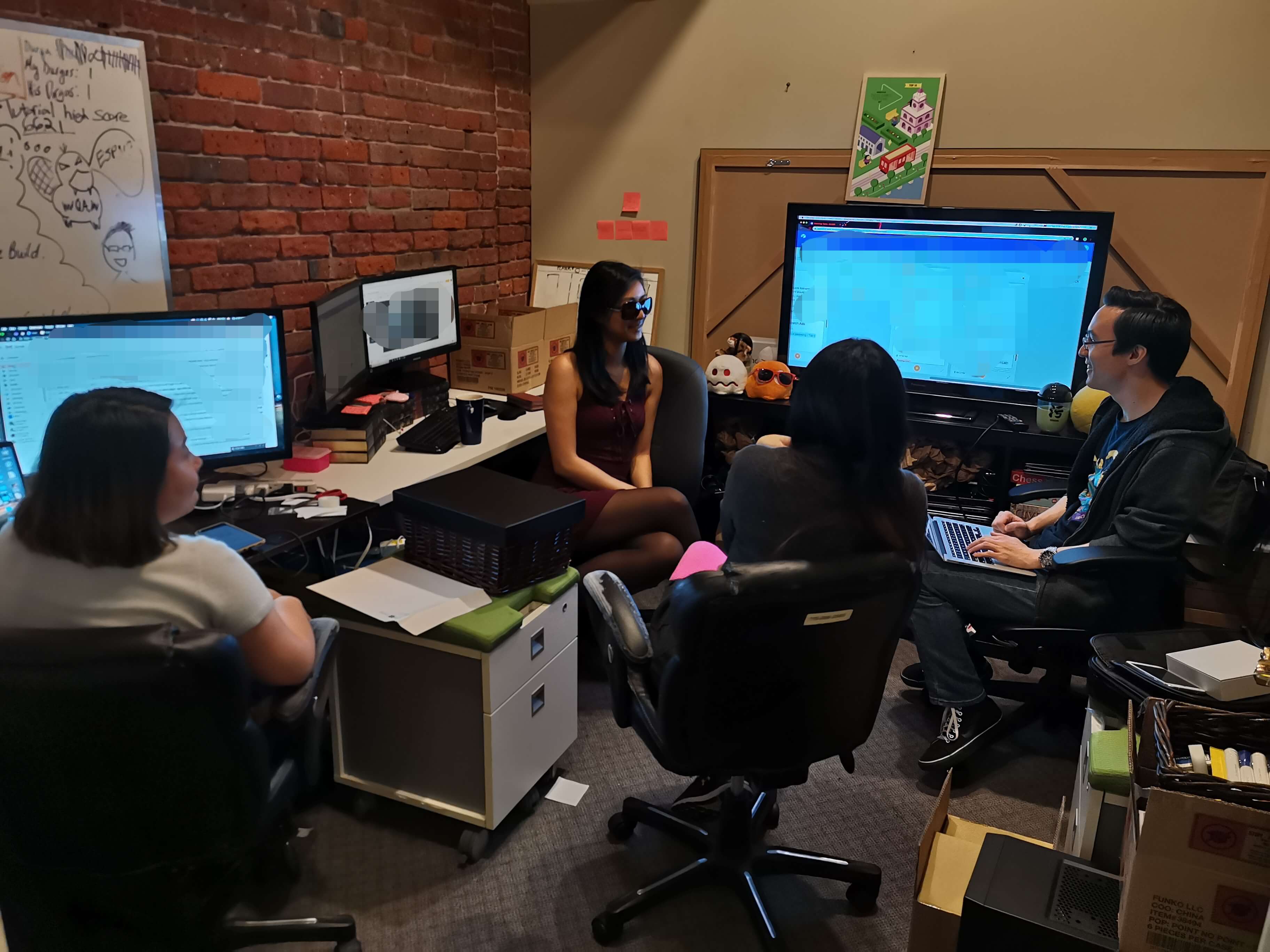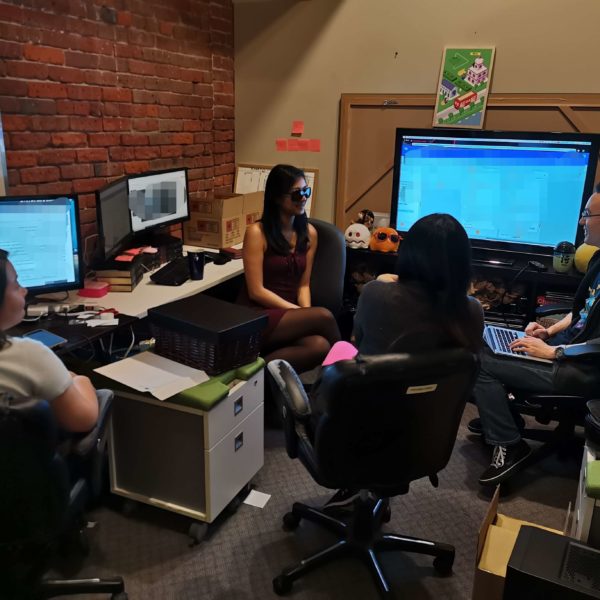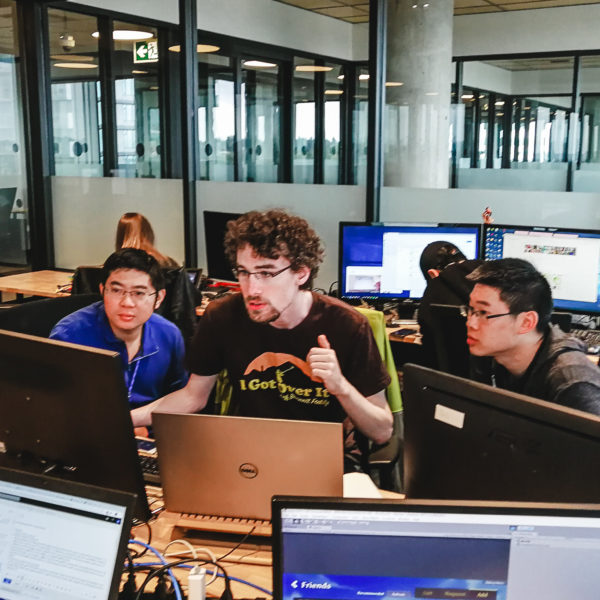How can a growing startup test their product effectively in a global market? We caught up with CEO Ted Mui and ISI student grant recipient, George, to find out how they worked together to test Piik games’ newest release in Brazil.
Tell us a bit about your project
Ted: We were working on several mobile gaming projects, including a mobile games publisher developer. We’re currently working on reaching Global markets such as Brazil and Europe and extending our reach across North America.
Brazil is very popular for soft launching a game–Portuguese is spoken in few countries, so it isolates the reach a bit and allows us to test the waters to see how the audience responds.
Why did you apply for the ISI grant?
Ted: We applied because we’re a small operation. Our aspirations are to grow within our industry and successfully launch projects–not an easy task with a lean team.
Launching a successful game requires development, marketing, and publishing support. As we got deeper into it, we realized that there were a lot of holes that certain team members couldn’t fulfill on our marketing and publishing team–that’s where our student George came in.
How did hiring a student help your startup?
Ted: We were quite open in terms of the skillsets we were looking for as a marketing coordinator. George was a great fit, and being a gamer himself, he was passionate about his job responsibilities. George has an understanding of our industry and since he speaks Spanish and Portuguese, it was helpful to assign him tasks relating to those markets.
Any success stories?
Ted: One of George’s roles was taking the lead in reaching out to a gaming influencer in Brazil. Without him, it would have been very difficult for us to make the connection. We didn’t have the in-house ability to reach out to Spanish or Portuguese influencers–to do so we would have needed to hire a large agency, with a significant budget. We’re able to rely on George to take the lead and coordination and execution of the marketing project. It was a very successful campaign.

What was the experience like to work with a student?
Ted: We’ve worked with young fresh grads before, but we don’t typically hire undergrad students. George has just entered his undergrad in Arts at UBC–initially we were targeting people who were towards the end of their program, with the plan of hiring them on as full time staff after they graduate. This time, we were focused on finding someone who was the right fit for the position and committed to the job.
Why would you recommend the program?
Ted: Yes, definitely. This program is flexible and hiring a student was central to the success of our project. Going back to what I mentioned before, we knew what to expect working with students–we know that their priority is still in school. As much as we expected that our hiree contribute to us, we also respect their schedule and need that work doesn’t disrupt their work / school balance.
We’re respectful of students’ schedules– if George had an exam coming up or if he had to return his home country for travel, we were able to accommodate that. Although we have our own deadlines and crunch time that we need more time, we worked with him to plan accordingly.
The advice we would give to other startups is to be respectful of your student’s schedule and try to work together so it’s a win-win for both parties.
Did you have work experience before this job?
George: Not really–I had worked in food service as a server before. It wasn’t as demanding as my job right now–it didn’t involve much time management or any of the things that I do right now. In Brazil we don’t have a culture of working before we graduate.
How did it benefit you (the student) to work with the company?
George: This was my first office job. I learned how to work as a team, delegate tasks, and communicate effectively. Aside from that, since I’m interested in marketing, this experience was perfect for me I had the opportunity to provide customer service, learn how to do market research, and manage social media.
Going forward in my career, this experience was not only memorable–it allowed me to understand how to work within these dynamics. It really benefited me.
Did you get a lot of support / mentorship?
George: Definitely. I didn’t realize how important market research is. I feel that I learned exactly what variables were important to conduct effective market research. That was very valuable and my biggest takeaway from this.
Anything you worked on that you’re really proud of?
George: The example Ted shared with Brazilian influencers. Right as I started working, I was I afraid of doing something wrong, but it worked out well. It was awesome-I was part of the call with the team from the Youtube channel–it was a great experience for me.
Would you recommend other students get involved?
George: Definitely. I think it depends on the student, but for anyone is looking for a job, this program is amazing. If a student is really focused and wants to start their career, this is a great opportunity.
Applications:
Interested in applying to the ISI grant program? Applications are open. Your BC-based tech company or start-up could receive up to $10,000 a year to hire a post-secondary student.
Hire a student
